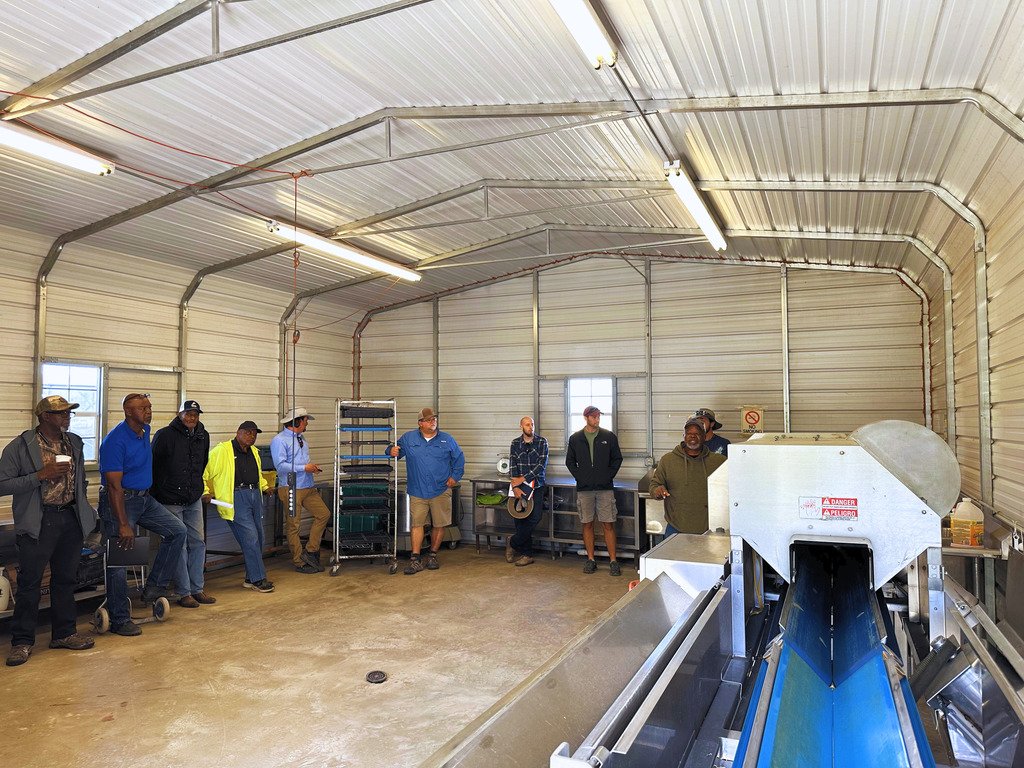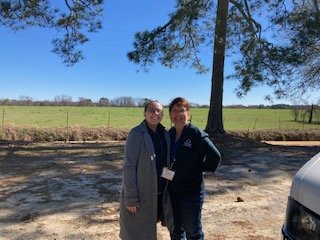By Yaza Sarieh
Yaza Sarieh is the Georgia Organics Community Collaboration Coordinator.
For the past ten years, Georgia Organics has coordinated a statewide campaign to get kids eating, growing, and learning about a new fruit or vegetable during October Farm to School Month. Over the years, this campaign has encouraged millions of Georgians to get excited about local fruits and veggies – even the ones that have a bad rep!
Our 2022 October Farm to School Month campaign, Spinach To Win It, reached over 700,000 Georgia students. Check out all our previous fruit and vegetable-themed campaign materials here.
This year’s October Farm to School Month campaign is celebrating PEPPER PALOOZA!
Graphics created by Ana Maria Paramo
Peppers are awesome because they not only grow and thrive right here in Georgia, but they are also found in cuisines all over the world.
When you sign up for October Farm to School Month: Pepper Palooza at bit.ly/pepperpalooza, you’ll automatically receive access to our free electronic toolkit full of pepper-themed materials. From lesson plans to classroom & cafeteria recipes, plus school garden resources and everybody’s favorite: merch – this campaign is going to be pepper than ever. It’s downright spicy!
To get peppered for Pepper Palooza, we asked some Georgia Organics staff to share some of their favorite pepper meals:
“I love to eat peppers in all kinds of salsas and hot sauces, which I eat on everything. I also love all peppers on pizza.”
“I love to eat Muhammara, which is a red pepper dip from the Middle East. It is great with pita bread or vegetables! When you sign up for Pepper Palooza, you can get a free kid-friendly Muhammara recipe!”
“I love this recipe from the New York Times: Skillet Chicken with Black Beans, Rice and Chiles.”
“My favorite way to eat pepper is in a non-traditional Italian sausage and peppers recipe. I like to char my onions with red and yellow bell peppers, then add fresh garlic and fresh oregano with chicken sausage. It’s a very simple and yummy recipe.”
“I’ve been snackin’ on jalapeños frescos since I was 4 years old – my favorite way to enjoy a spicy, healthy snack! When I decided I wanted to step away from a career in professional theatre, I never dreamed that farming and agriculture would be my next big step. For my first growing season this spring, I decided to stick to my love of peppers & grow six different varieties to see what new peppery dishes I could explore…on my list to try are: Sofrita, a traditionally Puerto Rican soup featuring aji dulce peppers (ajicitos) & Peperonata (Sweet Bell Peppers With Olive Oil, Onion, and Tomatoes) – using doe hill golden bell peppers – and my own hot sauce using habanero, jalapeno & aji amarillo chili peppers, all home grown from USDA Organic seed sourced from Southern Exposure Seed Exchange.”
Speaking of eating peppers, we have some BRAND NEW resources and activities specifically tailored for school nutrition! As part of our toolkit, we have different cafeteria recipes and promotional materials that will get everyone pumped for peppers. Additionally, when districts serve peppers at least once a week during the month of October, they are eligible to win a very special prize! Check out the requirements and contest information here.
Courtesy of Emily House, Gainesville, GA
Courtesy of Samantha Tarvin, Walker County
And speaking of contests, don’t forget to share all of your fun pepper activities for our social media contest! Use #pepperpalooza in your social media posts for the chance to win a fantastic prize. Social media winners will be selected each week and highlighted in our weekly engagement e-mails throughout October. At the end of the month, one lucky winner will receive a grand prize – so don’t snooze on the palooza!
What are you waiting for? If you haven’t signed up already, REGISTER NOW to get this Pepper Palooza started!
To learn more about Georgia Organics visit georgiaorganics.org or follow us on Facebook, Instagram, Twitter, LinkedIn, and YouTube by searching (Georgia Organics).
























































